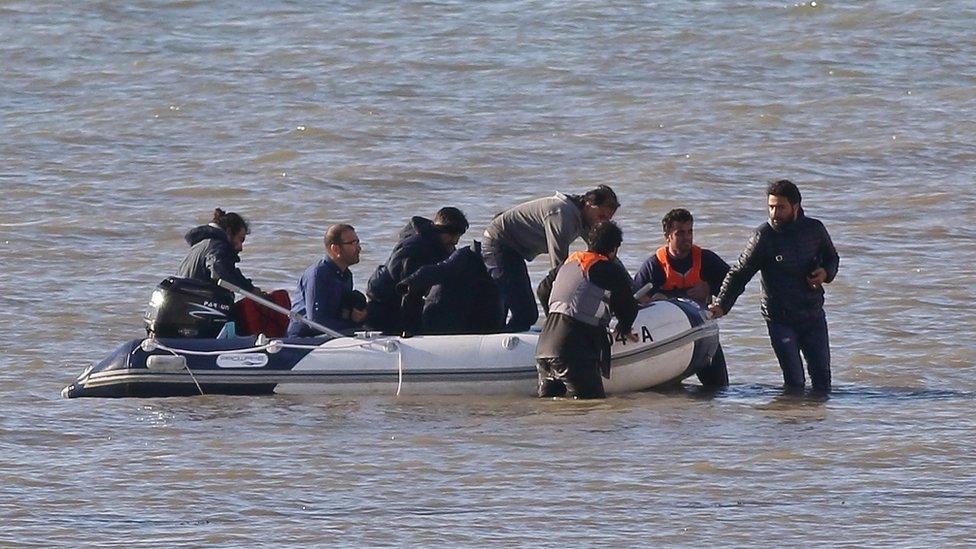Channel migrants: Rise in crossings driven by Brexit 'fake news'
- Published
Calais migrants caught on camera trying to reach the UK - This video has no sound
Eighty-six people attempted to cross the English Channel in a single day - amid claims that people smugglers were using threats about Brexit to pressure migrants.
Border Force officials intercepted six small vessels travelling towards the UK on Tuesday.
It is thought to be the highest number of people found in a single day.
French politician Pierre-Henri Dumont said migrants were wrongly being told "the crossing will close" after Brexit.
He blamed "fake news" about the UK's departure from the EU and said "security measures" alone would not stop the rise in crossings.
The Home Office said two small boats carrying a total of 23 people were intercepted by Border Force officials on Tuesday morning.
As the day progressed, four further vessels were intercepted, it said.
More than 1,100 people have crossed the Channel in small boats this year, with 336 in August.
The perils of crossing the Channel in a small boat
Meanwhile, thermal imaging cameras show that attempts by migrants to break into UK-bound lorries in Calais continue in earnest after nightfall.
Mr Dumont, Conservative MP for Calais, said: "Smugglers say to migrants, 'If the UK leaves the EU, you will not ever be able to cross the Channel'.
"It's a lie, because it won't change anything.
"Smugglers are giving fake news to migrants, but it's for them to earn money."
The UK's asylum system should be changed to allow migrants to apply at British embassies in Europe, he said.
He said French police could "not do more" to stop boat crossings, adding: "We need to understand that we cannot monitor 400 or 500km of coast."
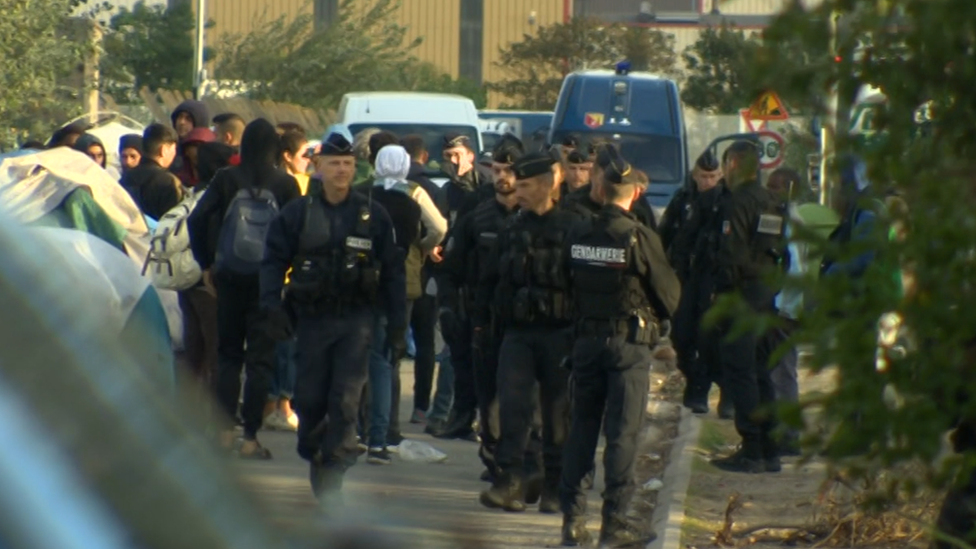
French police patrol the makeshift camps in Calais
Mr Dumont, said that many migrants had travelled thousands of miles, adding: "Now everyday they can see the English coast here in Calais. Do you really think controls, police forces, cameras, walls, will stop them from trying to cross? No, never."
He called for a "new system", allowing migrants to make asylum applications at British embassies across Europe.
"Right now if you are a migrant and you want to ask for asylum in Great Britain, you have to be physically present in Great Britain.
"That is making a big risk for them, because their only chance is to risk their life crossing [the Channel]."
A Home Office spokesman said it was "working closely at all levels with the French authorities to tackle this dangerous and illegal activity".
"Last month the home secretary and her French counterpart agreed to intensify joint action to tackle small boat crossings in the Channel," he added.
"This includes drawing up an enhanced action plan to deploy more resources along the French coast to intercept and stop crossings."
A note on terminology: The BBC uses the term migrant to refer to all people on the move who have yet to complete the legal process of claiming asylum. This group includes people fleeing war-torn countries, who are likely to be granted refugee status, as well as people who are seeking jobs and better lives, who governments are likely to rule are economic migrants.
- Published1 September 2019
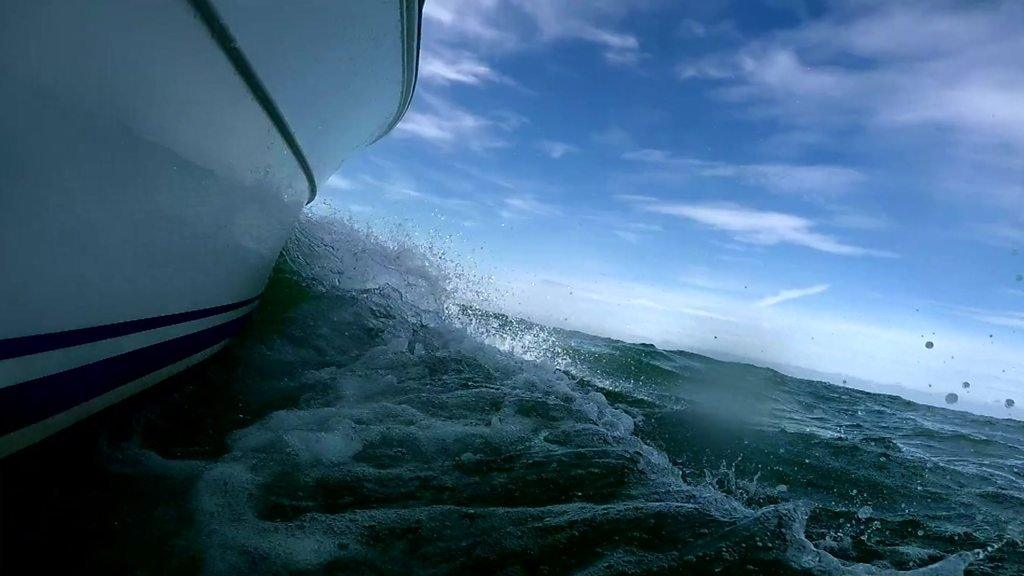
- Published29 August 2019
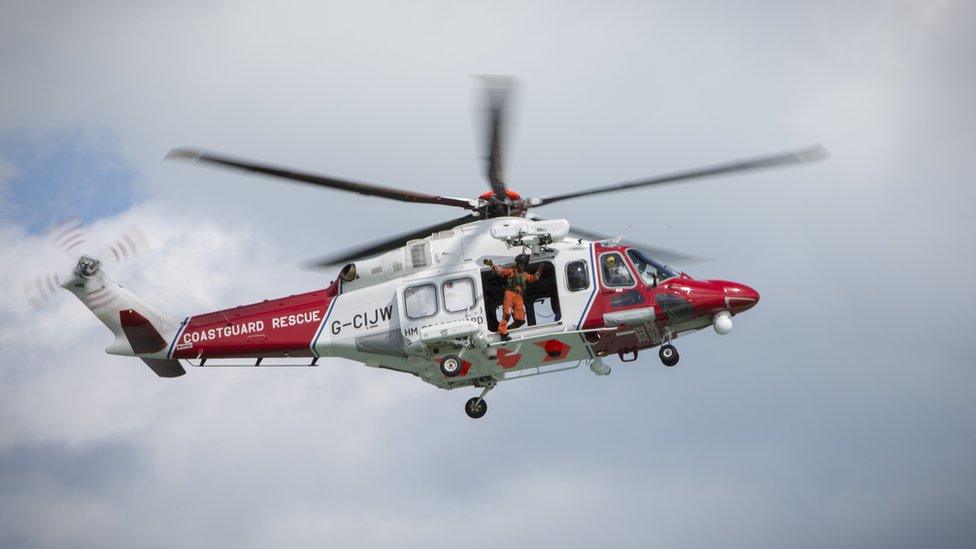
- Published10 September 2019
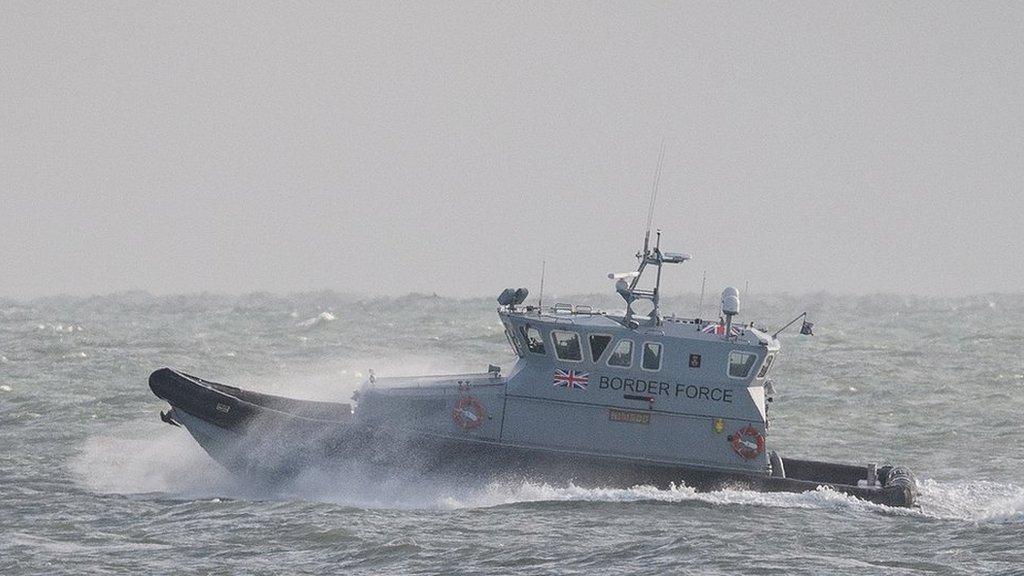
- Published31 August 2019
